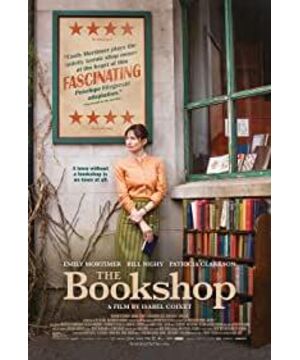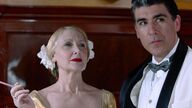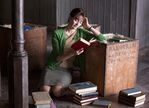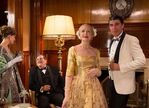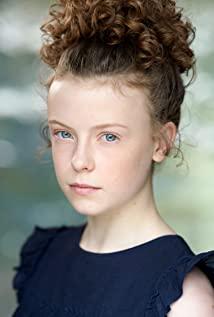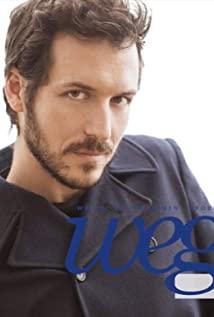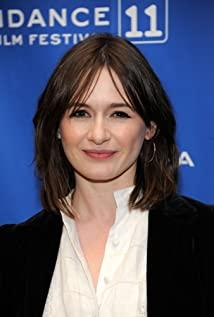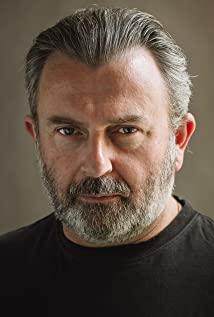For the sake of convenience, in this article, the female protagonist means that the female protagonist is the owner of the bookstore, and the male protagonist represents the role played by Bill Nighy. The villain means the general's wife.
1. Why did the villain not let the heroine open a bookstore.
Simply put, it is caused by a strong desire for control and power. The title explains that the villain wants to transform the old house into an art center, but this is actually just an idea. If the heroine does not come, she may never do it, and even the heroine is driven away in the end. Even if the old house is not burnt, she may not start construction. But the heroine's behavior of turning the old house into a bookstore privately made her feel offended.
At the banquet, she said that she was out of town for a while, so she didn't know that the old house was going to be transformed into a bookstore, which meant she might stop it if she knew. However, it has become a fact that the old house has been transformed into a bookstore, and normal people will accept this result. And what is the villain's inner thoughts? This is my territory. You haven't asked me for anything. This kind of feeling is like the old society worshipping the wharf and collecting protection fees. Where to do business, you must first ask the local elder brother. agree. Going a step further, the villain hinted to let the heroine leave, but the heroine was unwilling. The villain thought: How dare you say no, few people in the whole Harburg dare to say no to me.
What the villain wants to do is to punish the person who doesn't follow the "rules" to vent his anger and maintain her authority.
2. Why did the bookstore burn down at the end?
Burning down the bookstore is a kind of emotional catharsis, and letting the little girl burn is for the rationality of the plot. I don't know how the original book was written. As far as the movie is concerned, if it only ends with the heroine being driven away, it seems a bit anticlimactic, so it ends with burning down the bookstore, at least it can reveal some themes.
Under the premise of burning down the bookstore, there are actually three possible endings:
The first is that the heroine burns down the bookstore by herself, so there is no doubt that she will spend the rest of her life in prison, especially with the "help" of the villain, which is the worst ending in my opinion; second, the heroine Buried in the fire with the bookstore. When the male protagonist and the female protagonist ate cake together, the female protagonist once said that as long as you live there is hope, then now that hope - the male protagonist - is dead, is there no need to live, if this film sets the tone For tragedy, this kind of ending is not necessarily undesirable; the third is the ending of the film, where the little girl burns down the bookstore. In fact, there has been a foreshadowing before. The little girl told the heroine that this kind of stove is very dangerous, and the heroine said that as long as it is used correctly, it will be fine, so what if you are not careful? In addition, when the hero was by the river, he also said what he wanted to do the most. In fact, it was a direct shot at the villain, which shows the attitude of the screenwriter. This is not a story about negotiation. What the protagonist and the audience need is resistance and venting, so in the end the bookstore burned down. vent. The biggest reason for arranging the little girl to burn the bookstore is that, theoretically, she can be exempted from punishment. And to a certain extent, it is a kind of courage. The courage of children is a kind of courage that does not need to consider too many consequences. The act of burning down the bookstore is more suitable for this kind of courage, rather than the restraint of adults everywhere.
3. Why does the heroine want to open a bookstore?
The heroine and her dead husband met in a bookstore, so opening a bookstore is a kind of consolation to some extent, but it is not the whole motivation. After all, the heroine also needs to live, and opening a bookstore is also a means of making a living. From the perspective of the heroine, opening a bookstore is a kind of job she loves, and there is love and practical purpose.
4. Some additional ideas.
The first thought after watching "Bookstore" turned out to be that this film is very suitable for fresh graduates to watch, and to see the reality and complexity of the world when they are about to enter the society. There are two types of people in the movie, those represented by the male protagonist and the female protagonist, who are pure and full of spiritual pursuits, and the pragmatists represented by other townspeople, who are forced to work hard due to the pressure of life, but also cannot offend the powerful. . When faced with injustice and oppression in reality, whether to fight at the risk of losing your job, or accept silently or even be an accomplice, these two types of people actually give different answers, whether you understand it or not, whether you support Who, they just gave different answers from different positions and different levels.
As farmers, fishermen and other people at the bottom, most of them lack cultural education, neither the experience of reading nor the conditions to fall in love with books. As for the male and female protagonists, they are either well educated, or they have good conditions, and they no longer need to worry about their material needs. Only spiritual pursuits can truly enrich their lives.
Finally, back to our lives, in this era, in this society where everyone is bound by money, what kind of people will we become in the movie? Maybe everyone has their own choices, different choices.
View more about The Bookshop reviews


